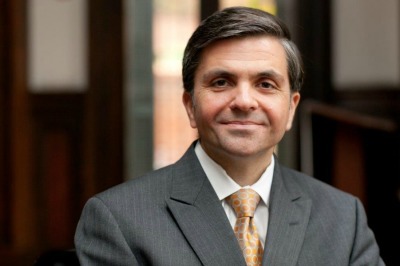Baltimore, Victimology, Empowerment & Wesley

Fortunately, the April riots in Baltimore eventually subsided, although the underlying causes no doubt persist. Much of the commentary in reaction, including Christian social witness, emphasized the victimhood of Baltimore's poor, for which ongoing societal atonement is needed.
As one theologian at a United Methodist seminary opined:
The true violence to consider arises from challenges to the dominant culture's grip on power. Such violence can be immediate or drawn out, as in the case of institutional violence, such as the economic forces that foster ghettos – where from the margins, tax money of black neighborhoods is extracted for the benefit of the center, where those privileged by race and class get to enjoy the Inner Harbor. Governments act violently when they maintain social structures that inflict prolonged harm or injury upon a segment of the population usually disenfranchised due to race or economic standing.
This rhetoric is common in secular and religious academia, espousing its own perspective from a position of tenured and subsidized privilege, typically far removed geographically and figuratively from real poor people. Instead of traditional beliefs about human sin, personal responsibility and redemption, it subscribes to postmodern narratives about inescapable and omnipresent dark social and spiritual forces of racism, classism, patriarchy and environmental apocalypse. This pseudo-religious narrative posits that humanity, both privileged and oppressed, is captive to demonic cosmic ghosts from which there's no salvation, just permanent guilt and reparation. Depressing!
Christianity's view of the human condition of course is more hopeful. John Wesley for example throughout his ministry confronted social pathologies similar to and far worse than Baltimore. Britain's urban poor and laboring classes, who themselves often turned to rioting, were politically disenfranchised and had few advocates and fewer opportunities for uplift. Wesley did not see them as chronic victims but fellow sinners, who lacked his own access to advanced education and middle class security, but who could through faith and discipline prevail over despair and poverty.
Eighteenth century Methodism stressed accountability through small groups, self help through church clinics and micro finance lending, social reforms aimed against exploiters of the poor like gin houses, gambling dens, and brothels, and most of all, hard work, diligence, sobriety, chastity, self-denial and godliness. They who are reliable in little will be trusted with much, he preached.
The often unruly urban poor and laboring classes of Wesley's era became the ascendant, church going, abstemious middle class of the Victorian era. Max Weber cited their example in his contested but still often cited The Protestant Ethic and the Spirit of Capitalism. Wesley himself, seeing the material fruits of his labors, worried that as the Gospel advanced, so too did prosperity, leading to materialism:
I fear, wherever riches have increased, the essence of religion has decreased in the same proportion. Therefore, I do not see how it is possible, in the nature of things, for any revival of religion to continue long. For religion must necessarily produce both industry and frugality, and these cannot but produce riches. But as riches increase, so will pride, anger, and love of the world in all its branches.
Wesley in his day did not have the welfare state, with all of its stupefying corruptions against churches, families and private initiative. But he knew the poor were dealt a raw deal, as in every society at all times, and that their spiritual and material advance could only proceed through the "industry and frugality" of self-empowerment. Grievance, resentment, rage, and entitlement were always tempting and even partly justified. But they were the self-defeating tools of the Devil, he knew, pointing to violence, despair and further poverty.
No doubt countless effective ministries in Baltimore and other cities practice what Wesley taught and lived. But too much of outspoken Christian social witness, looking for easy answers and alleviation of self-guilt, focusing on abstract forces instead of personal accountability, points at the "dominant culture's grip on power." These voices might consider that Wesley's notion of "industry and frugality," worked far better, against much greater and more entrenched poverty and social injustice, and was rooted in both Christian realism and hope about intrinsic human nature redeemed by God.




























